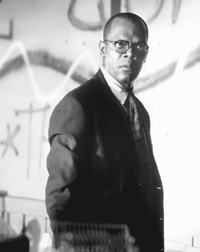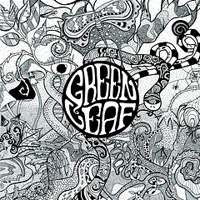 187
187
with Samuel L. Jackson, John Heard, Kelly Rowan, Clifton Gonzalez Gonzalez
Directed by Kevin Reynolds
Written by Scott Yagemann
by Scott Hefflon
Samuel L. Jackson can do no wrong. Either he knows how to pick ’em, or he can turn a turd into a sculpture, but he has a batting average better than intense mofos like Laurence Fishburne and Gene Hackman. 187 is like Full Metal Jacket or Stripes in that it’d probably be better as two movies. What begins as a conflict, both internal and external, is clarified too easily in the war that ensues. And despite the fact that 187 takes place in a classroom, a war it is. In the beginning, it’s the school system in New York. After finding a textbook defaced with “187,” the police code for homicide, passionate teacher Trevor Garfield (Jackson) is told, “You know what your problem is? On the one hand, you think someone is trying to kill you, and on the other hand, you actually think kids are paying attention in your class.” When Trevor is viciously attacked from behind, he takes 15 months to heal (physically, that is), moves to the San Fernando Valley, and begins substitute teaching. But it’s the same scenario: gangs rule the schools, intimidation is the only way to maintain respect, and the administration is more concerned with lawsuits than education.
But Trevor refuses to back down; he confronts one hood who beats his mother for getting in the way of the TV, he tries to assist a pretty, smart girl who’s trying to get into college who offers him sex for his tutelage because that’s the only thing she thinks she has to give, and, in general, you get the feeling there’s no way anyone’s getting out of this in one piece. And that’s when part two of 187 begins. People start to die. Fight fire with fire, as they say, yet the fire power only increases as the stakes get higher and more personal. There’s a love interest, yet it’s more loneliness than attraction. There’s violence, but it’s more an issue with our hero being capable of such ruthlessness, rather than the act itself. And then there is the showdown, as we knew there must be. And damn if Samuel L. ain’t one bad motherfucker right up until the end. The question has been raised about what the ending was supposed to convey, but perhaps it’s enough that it’s disturbing, and it makes you think.



